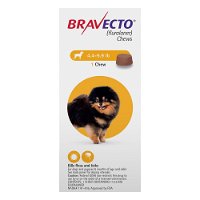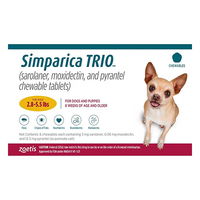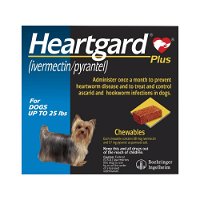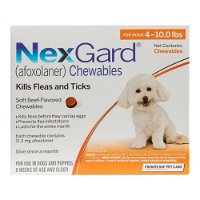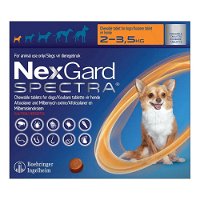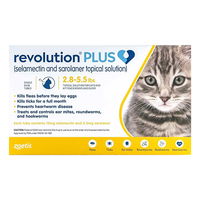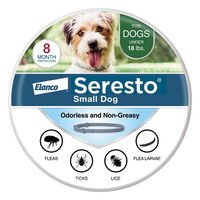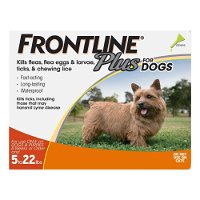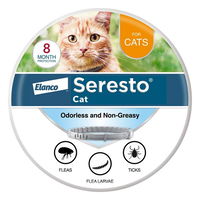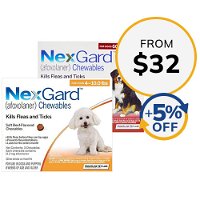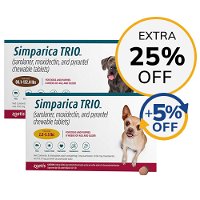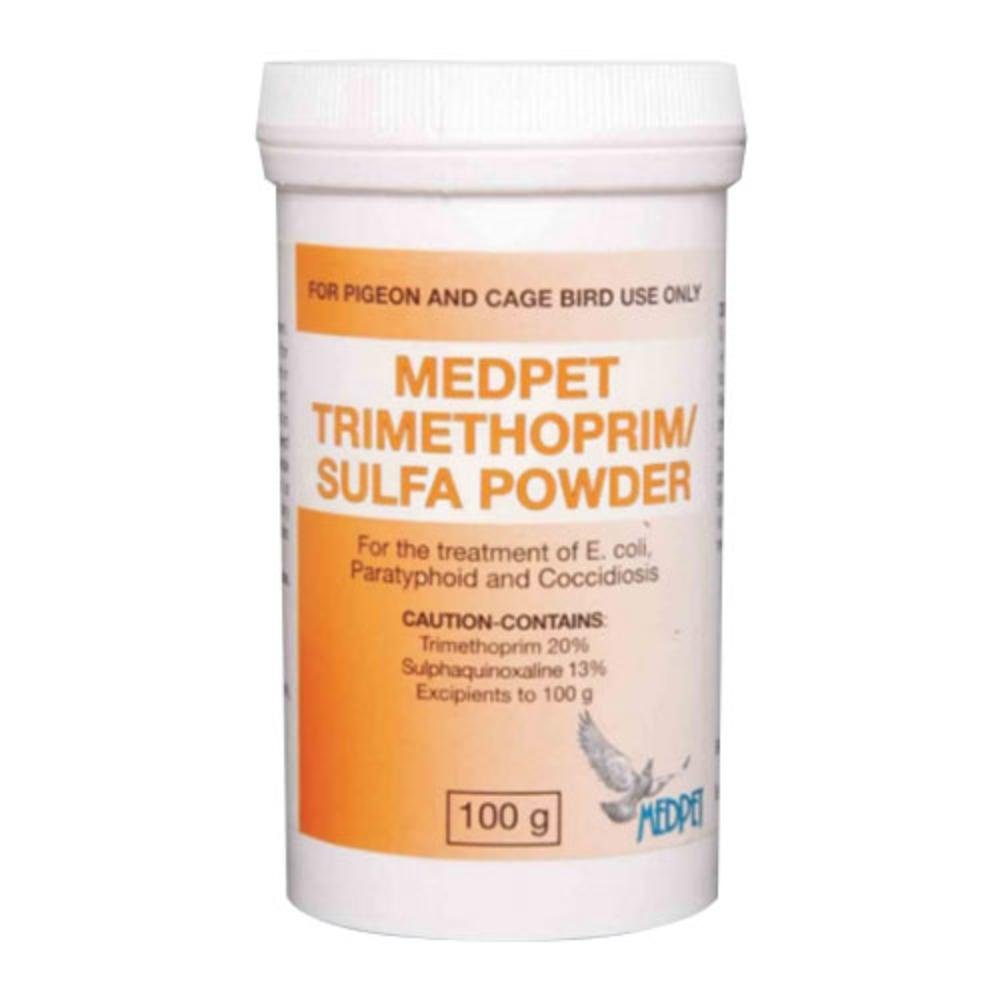Trimethoprim Sulfa Powder 100 gm
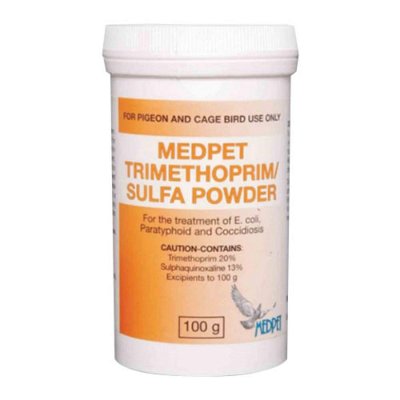
- Information
- Directions
- Safety
- Benefits
Trimethoprim Sulfa Powder for Bird Supplies
Trimethoprim Sulfa Powder is manufactured by MedPet. This dominant formulation protects birds and pigeons from harmful bacterial infections. It is very easy to administer this oral treatment. It cures different types of intestinal infections in birds like E-Coli and Coccidiosis. It also treats diseases like paratyphoid (Salmonellosis) which is one of the common diseases found in birds and pigeons.
How It Works?
Trimethoprim Sulfa Powder is the answer to all types of gastro-intestinal infections found in birds and pigeons. It contains Trimethoprim and Sulphaquinoxaline as active ingredients. When both these active ingredients are combined together it results in total destruction of parasites that cause bacterial infections in birds and guards them against harmful conditions. It also is quite effective against dangerous diseases like E.Coli and prevents them from spreading to other birds.
Ingredients:
- Trimethoprim
- Sulphaquinoxaline
Individual Bird: One drop in the mouth for 2 weeks.
- Aviary: Mix 1/8 teaspoon of Trimethaprim/Sulfa to 2 cups of drinking water for 7 to 10 days
- For 1 Gallon: Mix 1 teaspoon of Trimethaprim/Sulfa to 1 gallon of drinking water for 7 to 10 days
- Mix: Trimethaprim/Sulfa fresh daily.
Remove all other source of drinking water during treatment.
Probiotic should be given for 2 days after Trimethaprim/Sulfa.
After giving Trimethaprim/Sulfa see that you give the bird multivitamins daily.
- Before and after the treatment take veterinarian advice
- Highly safe for birds but do not assimilate the treatment with any other bird treatments
- A highly cost-effective solution for avian use only
- A very effective oral treatment
- Controls and prevents bacterial infections in racing pigeons and cage birds
- Easy to administer in pigeons and birds
- Effective against three types of infections in birds
- Protects birds from different types of bacterial diseases
- Treats Salmonellosis (paratyphoid), e-coli and Coccidiosis in birds

